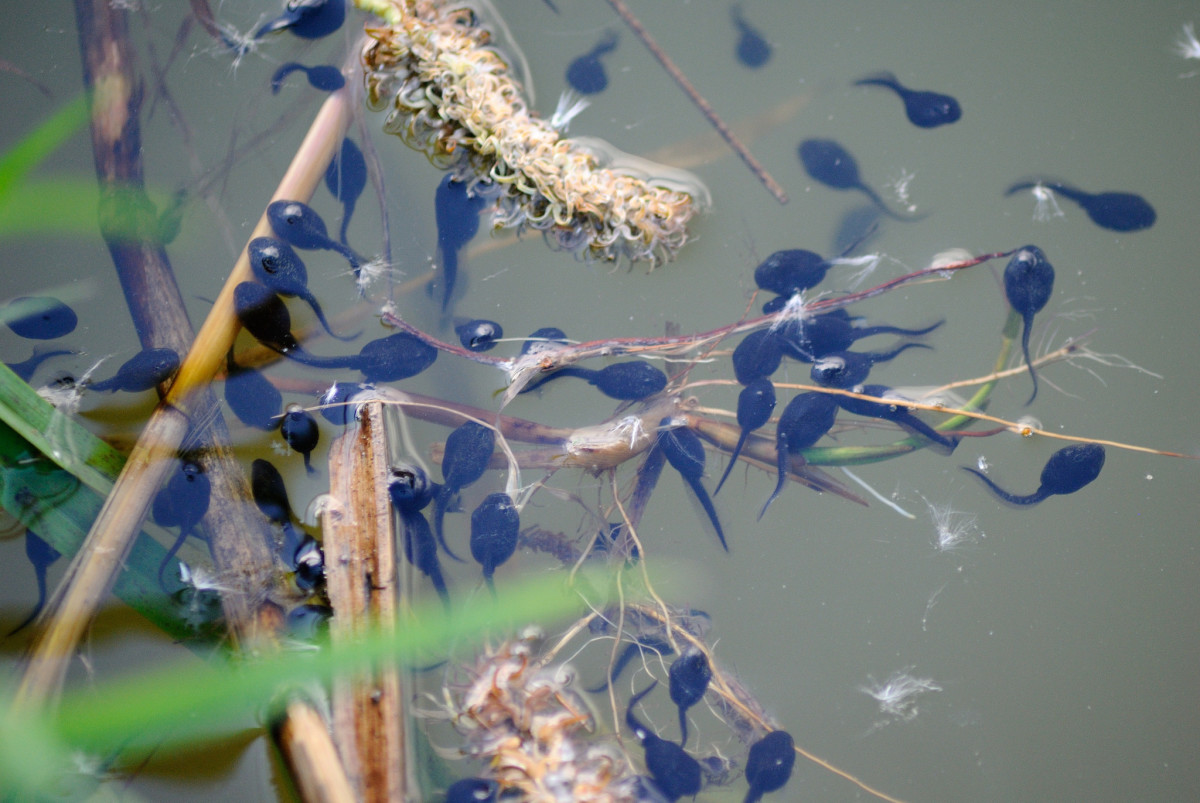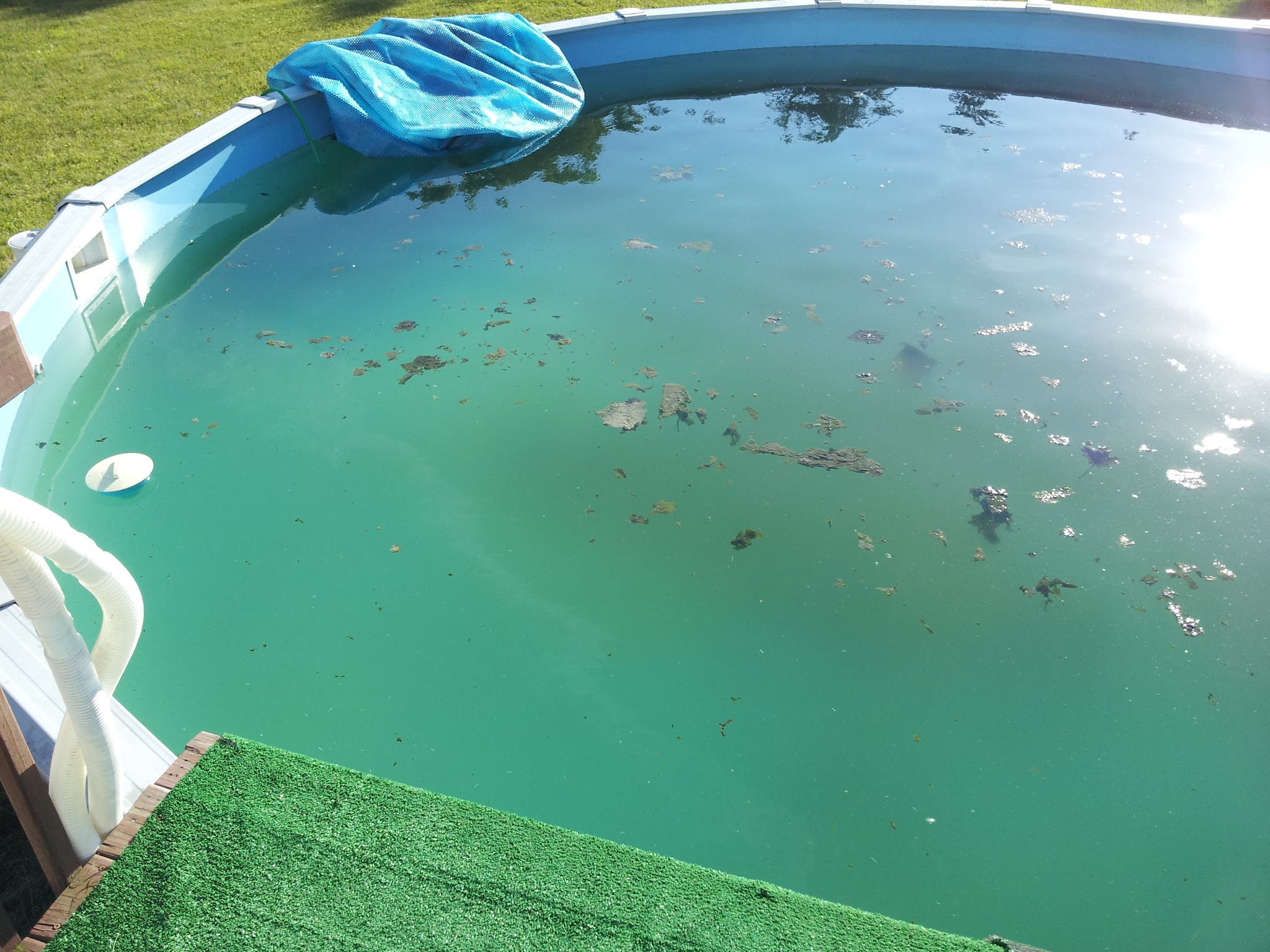No, bleach will not kill tadpoles in a pool. Bleach can be harmful to aquatic life, but it is usually diluted before being added to a body of water and the amount used would typically not be enough to harm tadpoles. Additionally, once chlorine has been added to water it dissipates quickly which means that even if there was an initial spike in chlorine levels after adding bleach, they would drop back down shortly afterwards which means that any potential damage caused by the chlorine should be minimal.
It is not recommended to use bleach when there are tadpoles present in a swimming pool. Bleach can be toxic and will kill off the tadpoles, so it should only be used as a last resort if other measures like manual removal have failed. While chlorine-based products may help keep algae growth in check, it could end up killing off the tadpoles living in the pool.
It’s best to find alternate solutions for getting rid of unwanted pests without harming any wildlife that might also reside in your pool.
How to Get Rid of Tadpoles in Pool Without Draining Water
One way to get rid of tadpoles in your pool without draining the water is to use a pond vacuum. These vacuums are designed specifically for removing debris and organisms from ponds, including tadpoles. They work by suctioning up the creatures along with any other floating debris in your pool.
Once you have removed all of the offending critters, simply turn off the vacuum and discard them away from your home or property. This method is much more environmentally friendly than draining the entire pool!
Will Vinegar Kill Tadpoles
Vinegar can be used to kill tadpoles, but it is not recommended because of its potential to harm the environment. Vinegar is an acid and when added to a pond or other water source, can cause an imbalance in pH levels which can lead to toxic conditions for living organisms including tadpoles. It’s best not to use vinegar as a means of controlling the tadpole population and instead turn to natural alternatives such as introducing predators into the ecosystem that will help keep their numbers down without damaging your local aquatic life.
Will Salt Kill Tadpoles
No, salt will not kill tadpoles. Tadpoles can survive in water with high levels of salt; however, it is important to keep the salinity at a safe level for them so they are able to thrive and remain healthy. Too much salt can be detrimental to their health, therefore it is best to avoid adding salt into an aquatic habitat where tadpoles live if possible.
Why are Tadpoles in My Pool
Tadpoles in your pool can be beneficial for the environment as they help to feed other animals like fish and birds, but if you don’t want them there, it is important to understand why they are there. Tadpoles usually find their way into pools from nearby ponds or streams when rainwater carries them over. Additionally, adult frogs may lay eggs directly in the pool water which can then hatch into tadpoles and turn your swimming area into a nursery!
How Did Tadpoles Get in My above Ground Pool
It’s possible that tadpoles may have found their way into your above ground pool by hitching a ride on the legs of birds, frogs or other animals. Also, rainwater runoff can carry them in from nearby ponds or lakes. Even though they may look cute and harmless enough, it is important to remove the tadpoles as soon as possible since they will rapidly reproduce and can cause problems with water chemistry and clarity.
Tiny Tadpoles in Pool
Tiny tadpoles are often seen swimming in natural bodies of water, but they can also be found in pools. If you have a pool that is not treated with chemicals and other pollutants, it may become home to these small amphibians. Tadpoles are typically harmless and eat algae growing on the surface of the water as well as any decaying organic matter present.
They will eventually metamorphose into frogs or toads depending on their species.
Does Chlorine Kill Frog Eggs
Chlorine is a common disinfectant used to kill microorganisms in water. It has been found to be effective against frog eggs as well, but it should not be relied on as the only means of controlling populations. Studies have shown that chlorine can reduce the hatching success of frog egg masses by up to 90%, and thus its use can help regulate amphibian populations in certain areas.
However, other methods such as physical removal or introducing predators may also prove more effective for population control depending on the situation.
Frog Eggs on Pool Cover
Frog eggs on a pool cover can be a tricky situation. Frogs are attracted to the moist environment and will lay their eggs in or near your pool water. It is important to be aware of this as the eggs can hatch and create larvae, which could lead to an infestation.
To prevent this from happening, you should check for frog eggs regularly and remove them if found. Additionally, it might help to keep your pool area clean so that frogs don’t find it attractive enough to lay their eggs there in the first place.

Credit: dengarden.com
How Much Chlorine Does It Take to Kill Tadpoles?
Chlorine is a powerful tool for killing tadpoles and other aquatic life. The exact amount of chlorine needed to kill tadpoles depends on several factors, including the concentration of chlorine in the water, size of the pool or pond, and health of the tadpole population.Here are some general guidelines:
• 1 ppm (parts per million) is enough to kill most mature tadpole populations
• 2-3 ppm will kill almost all remaining tadpoles
• 5-10 ppm will ensure complete eradication
However, it’s important to note that using too much chlorine can be harmful to other wildlife in the area. Therefore, it’s best to use as little as possible while still achieving your desired results.
What Kills Tadpoles in a Pool?
Tadpoles in a pool are usually killed by predators, such as fish or turtles. Other causes of death include:
* Poor water quality due to chemical treatments
* Lack of oxygen caused by algae blooms
* Low temperatures resulting from too much shade. In addition, overcrowding can also lead to the spread of disease and mortality amongst tadpoles.
Therefore, it is important to monitor the environment and population size regularly for healthy development.
Is It Ok to Swim With Tadpoles?
Yes, it is OK to swim with tadpoles. Swimming with them can be a fun and educational experience. However, there are some important safety considerations to keep in mind:
• Ensure the water is safe for swimming, free from contaminants like chemicals or other pollutants.
• Do not attempt to touch or pick up any of the tadpoles; they should remain in their natural environment undisturbed.
• Make sure you wash your hands thoroughly after interacting with them as frogs may carry bacteria that could cause illness if ingested by humans.
Finally, exercise caution when entering bodies of water containing tadpoles; never enter an area where dangerous wildlife such as snakes or alligators might live nearby.
Why Does My Pool Keep Getting Tadpoles?
Tadpoles in a pool is a common problem. There are several possible causes, including:• Natural sources: Tadpoles can enter your pool from nearby ponds, streams or other water sources.
• Rainwater: Heavy rainfall could transport tadpoles into the pool.
• Unscreened skimmers and drains: If these are not properly screened, they can become entry points for tadpoles.
• Poorly maintained pools; Pools which lack proper maintenance may attract more unwanted visitors like tadpoles.
The best way to prevent any problems with swimming pools is to keep them clean and well-maintained at all times by regularly checking and cleaning filters as well as ensuring that all skimmers/drains have screens on them to prevent entry of any unwanted species such as frogs or their eggs (tadpole).
Removing 20,000 INVASIVE TADPOLES!? (Must Watch)
Conclusion
This blog post has provided a clear answer to the question of whether or not bleach will kill tadpoles in a pool. It is important to understand that while bleach can be an effective way to rid your pool of unwanted pests, it should always be used with caution and according to instructions on the label. In addition, other methods such as manual removal or natural solutions are also available for getting rid of tadpoles from your pool.
Ultimately, this blog post shows that when used correctly and responsibly, bleach can be a safe and effective means for eliminating tadpoles from your pool.
